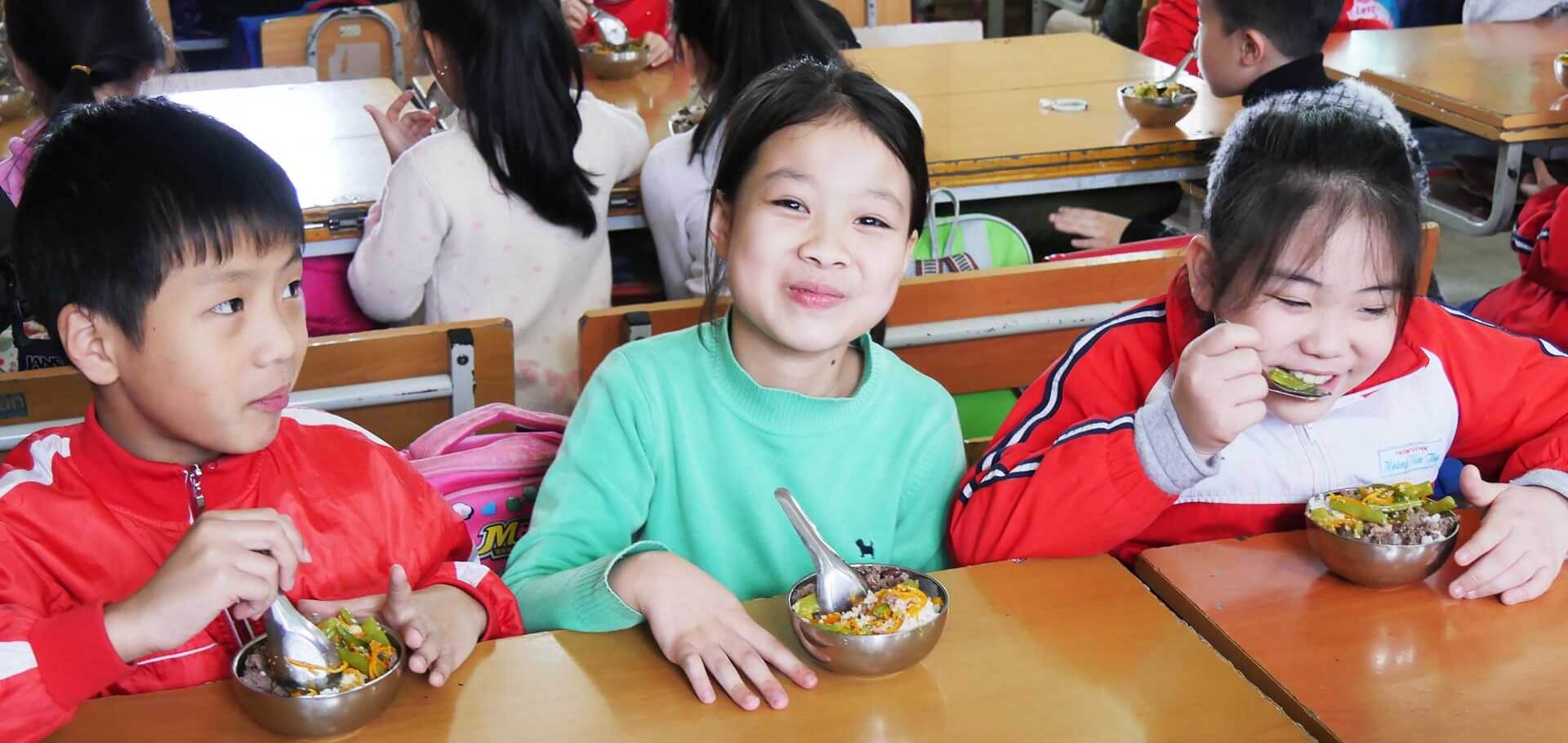Nearly half a century on from the end of the Vietnam War, life for ordinary Vietnamese has arguably never been better. The economy is booming, living standards and household incomes are rising, and foreign tourists are arriving in ever increasing numbers, drawn by unspoiled beaches, vibrant cities, rich cultural attractions, and the country’s world-famous cuisine.
But despite making great strides, this southeast Asian country of nearly 100 million, almost a quarter of whom are below age 15, struggles to meet the nutritional needs of its youngest citizens. In the countryside, many children fall below WHO growth standards for height and weight, while in cities the number of overweight or obese children is climbing. Some years back, Vietnam implemented a school lunch program to address these problems. But the country’s schools lacked qualified nutritionists to design meals that could provide daily recommended allowances of vitamins and minerals, plus a balance of carbohydrates, fat, protein, salt, and calories.
After WWII, when Japan faced a similar situation with child nutrition, the government implemented its own school lunch program to address it. Then, in the 1980s, the issue shifted to childhood obesity and new nutritional guidelines were drafted. Today, Japan is the only country in the world where obesity rates are actually falling, and life expectancy is the longest in the world and rising.
In 2012, Ajinomoto Vietnam Co. launched a project to bring ideas adapted from Japan’s lunch program to schools across Vietnam. Working closely with relevant government agencies, the School Meal Project developed menu books and educational materials about food and nutrition, introduced software that assists in planning menus, and set up model kitchens to show visitors how to prepare healthy, well-balanced meals. By April 2019, the project had provided meals to over 1.3 million primary pupils. Throughout the Asia region, other Ajinomoto Group companies are exploring similar programs to address the nutritional needs of children and adolescents.
More than handouts, people need the tools and knowhow to rebuild their lives and stand again on their own two feet again—especially after times of great adversity. As the saying goes, “Give a man a fish and you feed him for a day. Teach him to fish and you feed him for a lifetime.”
School Meal Project in Vietnam
Find out more

